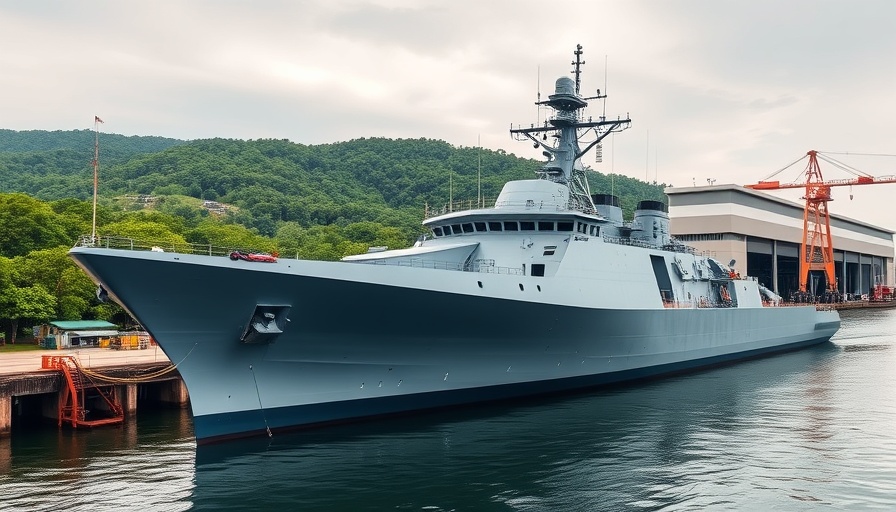
Fincantieri and EES Forge New Path for Malaysian Navy
In a significant stride towards bolstering national defense, Fincantieri, a renowned Italian shipbuilding company, has entered a transformative partnership with Enra Energy Solutions (EES). This collaboration is a pivotal component of the Royal Malaysian Navy's ambitious "15 to 5" fleet renewal initiative, aiming to refresh its naval capabilities significantly by reducing the number of ship classes from 15 to just five. This strategic shift demonstrates Malaysia's commitment to enhancing its maritime security amid evolving regional threats.
Innovative Naval Solutions to Meet Defense Needs
The focal point of this partnership lies in the development of advanced naval platforms, particularly the multi-role support ships and the third batch of littoral mission ships (LMSs). The LMSs, recognized for their versatility, are designed to undertake a spectrum of missions ranging from anti-surface operations to electronic warfare. Equipped with state-of-the-art sensors and systems such as combat management systems from Havelsan, these vessels are set to redefine the operational landscape of the Malaysian Navy.
Reinforcing Local Industry through International Collaboration
According to Fincantieri chairman Biagio Mazzotta, the partnership with EES aims not only to enhance military readiness but also to stimulate local industrial participation and strengthen Malaysia's maritime defense infrastructure. This initiative promises to foster a resilient local defense ecosystem while incorporating global expertise. By integrating international standards into local practices, Malaysia is positioning itself as a formidable player in the maritime defense landscape.
The Future of Maritime Defense in Southeast Asia
Southeast Asia is increasingly recognized as a strategic theatre for maritime defense, underscored by ongoing geopolitical tensions. As nations in the region ramp up their defense postures, partnerships like the one between Fincantieri and EES exemplify proactive measures to ensure national security. By leveraging international resources while investing in domestic capabilities, Malaysia seeks to emerge as a significant contributor to regional stability.
Implications for the Shipbuilding Industry
The collaboration heralds new opportunities within the shipbuilding sector, resonating particularly in local economies like Mississippi, where shipbuilding is a vital industry. As Malaysia sets the stage for modernization, shipbuilders in the region can draw insights from this initiative—adapting and innovating to meet emerging demands. The lessons learned may influence sustainable practices and technological advancements in shipbuilding, reflecting a global trend towards modernization and efficiency.
Navigating the Challenges Ahead
While the potential benefits are substantial, the path forward presents its own set of challenges. Concerns regarding technological integration and maintaining quality standards loom large. Moreover, market fluctuations and shifting defense priorities necessitate agile responses from all stakeholders involved. Ensuring the sustainability of local supply chains and developing a skilled workforce will be critical to achieving success in this endeavor.
Conclusion: A Call to Action for the Future
The partnership between Fincantieri and EES is more than just a business agreement; it represents a concerted effort to reshape Malaysia's maritime capabilities while fostering local industry. As this collaboration unfolds, it is essential for stakeholders, including policymakers and industry leaders, to recognize the broader implications for regional security and economic resilience. Engaging local talent and innovation will be crucial in this ongoing effort. Let's stay informed and involved in discussions surrounding maritime development and defense capabilities.
 Add Row
Add Row  Add
Add 




 Add Row
Add Row  Add
Add 

Write A Comment